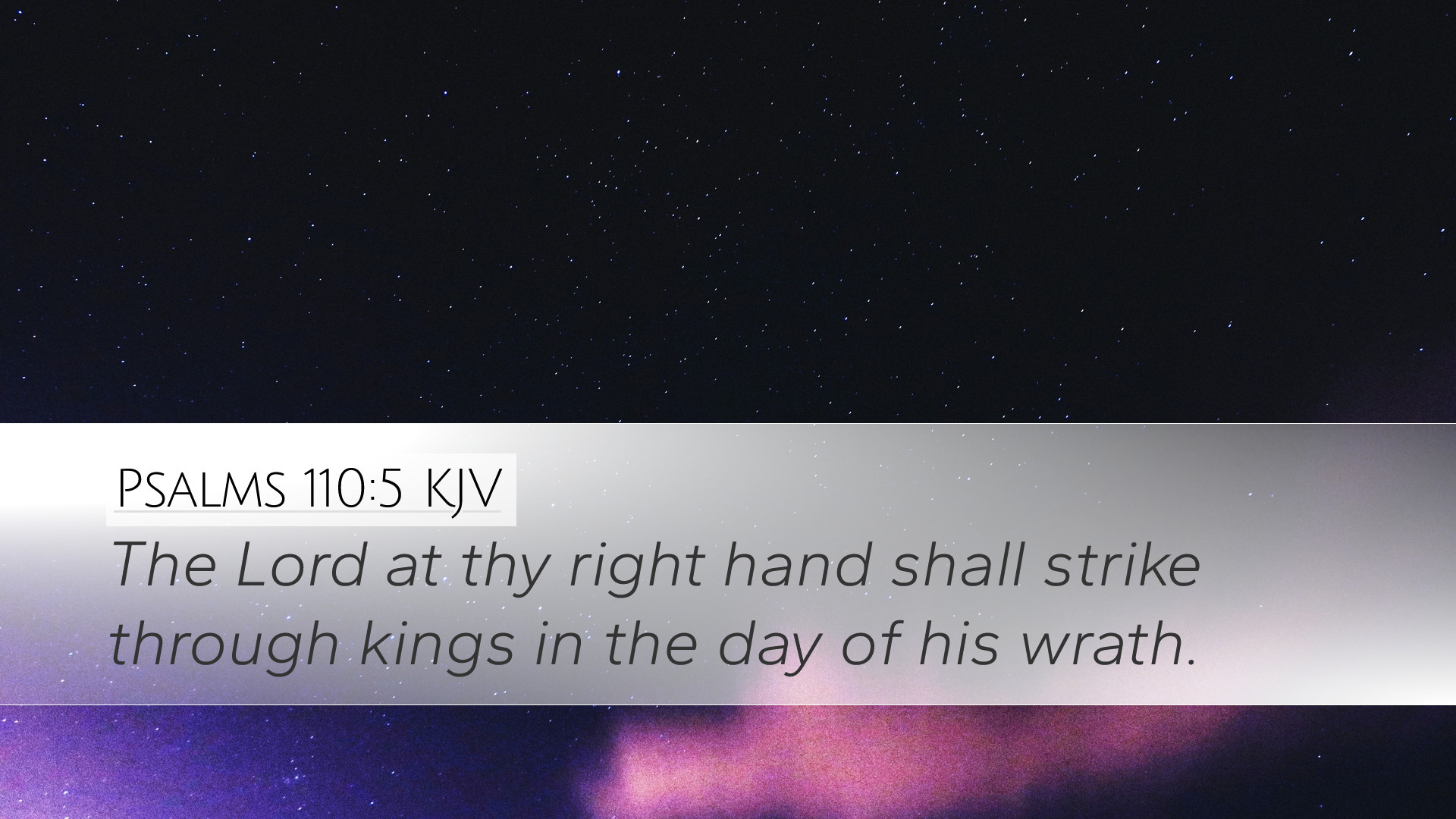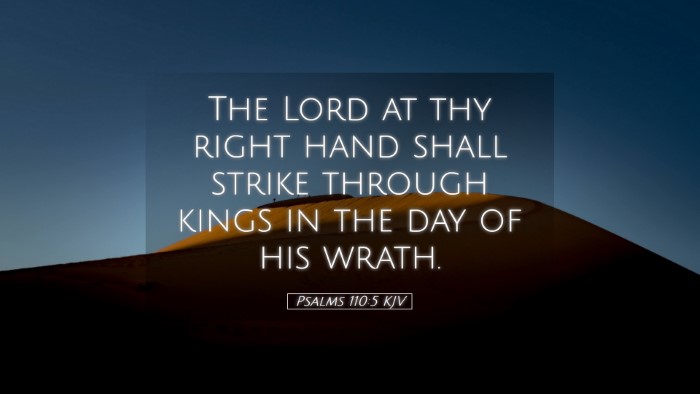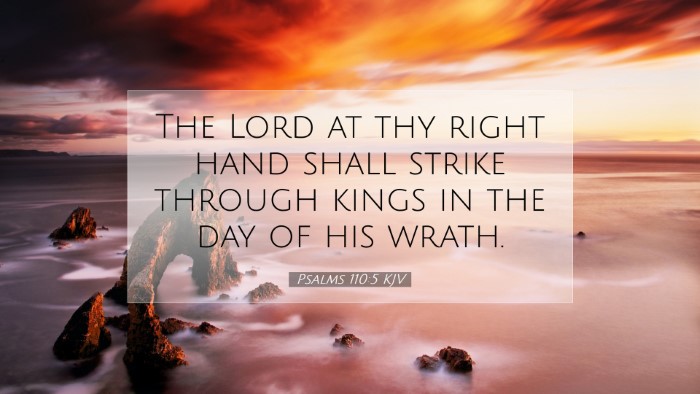Commentary on Psalms 110:5
Verse Overview: Psalms 110:5 states, "The Lord at thy right hand shall strike through kings in the day of his wrath." This verse is a profound declaration within the Messianic Psalm that highlights the exalted position of the Messiah and the divine authority that accompanies it.
Contextual Background
The psalm is attributed to David and is recognized as one of the royal psalms that accentuates the kingship and priesthood of Christ. The opening verse of the psalm sets the stage for the powerful declaration regarding the Lord’s sovereignty. Analyzing this verse necessitates an understanding of the psalm's structure and its prophetic implications.
- Royal Authority: It emphasizes the dual role of the Messiah as both king and priest, a theme alloyed throughout scripture.
- Judgment and Justice: The "day of his wrath" alludes to divine judgment, indicating the seriousness of God's authority to execute justice.
Interpretational Insights
This verse illustrates the power held by the Messiah, who is seated at the right hand of God, symbolizing a position of honor and authority. Key insights from notable theologians offer depth to its understanding:
-
Matthew Henry:
Henry emphasizes the ongoing reality of God's kingly rule through Christ's being at His right hand. He notes that the 'right hand' signifies strength and protection. Furthermore, the imagery of striking down kings depicts the ultimate triumph of Christ over worldly powers and principalities.
-
Albert Barnes:
Barnes connects this verse with the idea of a final judgment where Christ will exert His authority over kings and nations who have opposed His rule. He likens this action to the victory of a sovereign executing justice upon rebels, reinforcing the theme of Christ as a warrior-king who brings forth divine wrath against sin and rebellion.
-
Adam Clarke:
Clarke posits that the 'kings' mentioned are not just earthly rulers but represent the forces of darkness and evil. He notes that the 'day of his wrath' signifies a decisive time when God will manifest His power, suggesting an eschatological dimension inherent within the text.
Theological Implications
This verse has significant implications for understanding Christ’s power and authority in the present and future.
- The Authority of Christ: The position of being at the right hand of God underscores His authority and intercessory role. Believers can find comfort in the assurance of Christ's continual reign and active involvement in the affairs of humanity.
- Judgment and Accountability: The mention of divine wrath serves as a sobering reminder of God's judgment. It challenges believers to reflect on their lives and align themselves with God's will, promoting a responsibility to live righteously in anticipation of Christ’s return.
- Mystery of Suffering: Understanding the 'day of His wrath' encourages us to trust in God's perfect timing for justice, even amidst suffering and chaos in the world. It reassures believers that no injustice escapes God's attention.
Practical Applications
When reflecting on Psalms 110:5, several practical applications emerge for congregational living and personal faith:
- Encouragement in Trials: Recognizing that Christ holds all authority gives believers strength in their struggles. Pastors can encourage their congregations to rest in the sovereignty of Christ as they face life’s tribulations.
- Call to Evangelism: Understanding the reality of divine wrath should compel believers to share the gospel message evangelistically, stressing the urgency of reconciliation through Christ.
- Commitment to Righteous Living: The certainty of judgment prompts believers to examine their lives, leading to a lifestyle that aligns with biblical principles, reflective of Christ’s character.
Conclusion
Psalms 110:5 serves as a powerful reminder of Christ’s exalted position and His authority over all. As pastors, students, theologians, and Bible scholars reflect upon this verse, it is vital to recognize its rich theological implications, its call to live righteously, and its assurance that God’s justice will ultimately prevail.


